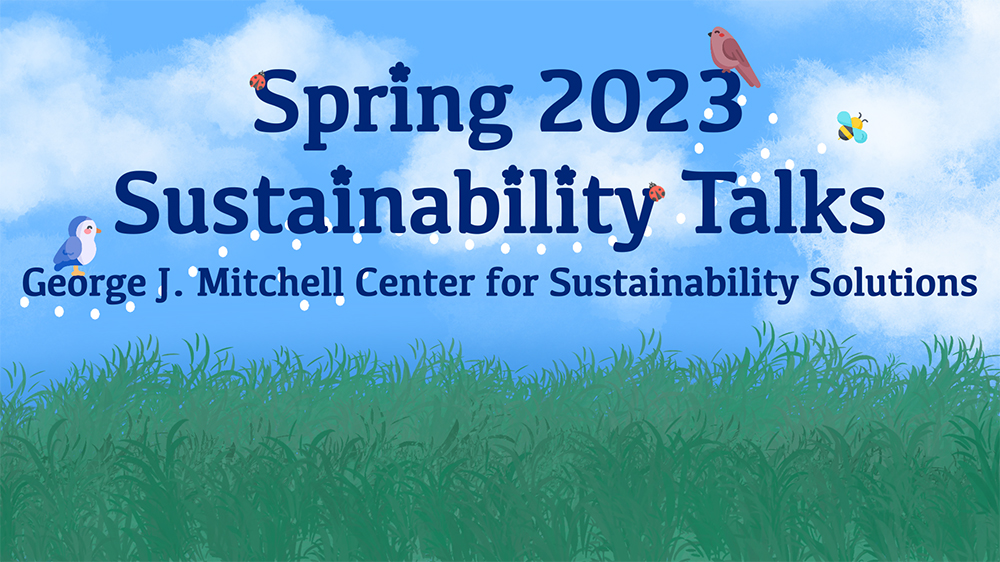On Jan. 30, the Senator George J. Mitchell Center for Sustainability Solutions welcomed Maine Department of Environmental Protection (DEP) climate change specialist Nathan Robbins. Robbins delivered a talk focused on interpersonal relationships and their importance within climate action for the first Mitchell Center discussion of the spring 2023 semester.
“Implementing climate action plans is really complex,” said Robbins.“Climate change in general is complex [due to its pervasive nature].” Since climate change is a multidisciplinary problem, it requires multidisciplinary communication and collaboration — hence the importance of relationships.
“From an early age, I had a strong relationship with the environment. Probably like many of you, I was outside all the time,” Robbins said of his own environmental experience, ranging from childhood park visiting and bike riding to being a park ranger for the Massachusetts Department of Conservation and Recreation and focusing his attention on climate change.
It was through these experiences that Robbins got to form relationships with liaisons and supervisors that helped answer vital questions about climate change and how their programs could address these issues.
According to Robbins, forming meaningful relationships helps to expose issues caused by climate change as well as their natural solutions. Robbins described a survey of superintendents in southern Maine, where 91% of their facilities have been impacted by extreme weather.
Relationships formed with influential individuals in the state also have a direct impact on climate change.
“[When] the state started doing climate action planning, that’s when the emission reduction started going down,” Robbins said. He elaborated on the incredible inertia he has seen by people driven to reduce the effects of climate change.
Robbins mentioned that flood markers and projected high water marks on coastlines, which have been used to demonstrate the dangers of sea level rise to the public, are making climate change concerns more apparent. Furthermore, the State of Maine has shown evidence of progress on more than 80% of its emissions.
Robbins also credits current University of Maine students and research assistants at the Mitchell Center for helping with the Resilient Infrastructure Research internship, which involves the DEP through networking and exploring partnerships to solve climate change problems.
Robbins shared a lesson from the Maine Climate Change Adaptation Providers Network. Adaptation happens at the speed of trust, Robbins said. He explained that climate change cannot be alleviated until we build meaningful partnerships and trust within each other.
The talk brought together a number of students and community members alike. Several students were excited to share their opinions on Robbins’ presentation and how the information impacts them.
“[I] learned a lot about the kinds of things the DEP does…[and] that there are a lot of different organizations working on climate change and emission control in Maine. I liked the idea of the groups wanting to create more and stronger relationships with communities to succeed in reducing emissions and actually creating solutions to climate change,” said Anna Prchilk, a second-year wildlife ecology student.
The talk’s message impacted many students and reflected on important takeaways for their future.
“I think relationships in climate change mitigation [are] extremely vital,” said Suzy Violette, a 25-year-old sustainable agriculture student. “Going onto my career, whatever field I decide to go into, I think it’s important to be able to make those climate action plans and use resources like the DEP and others to really get it moving.”
A recording of this talk is available at the Mitchell Center’s YouTube channel.








